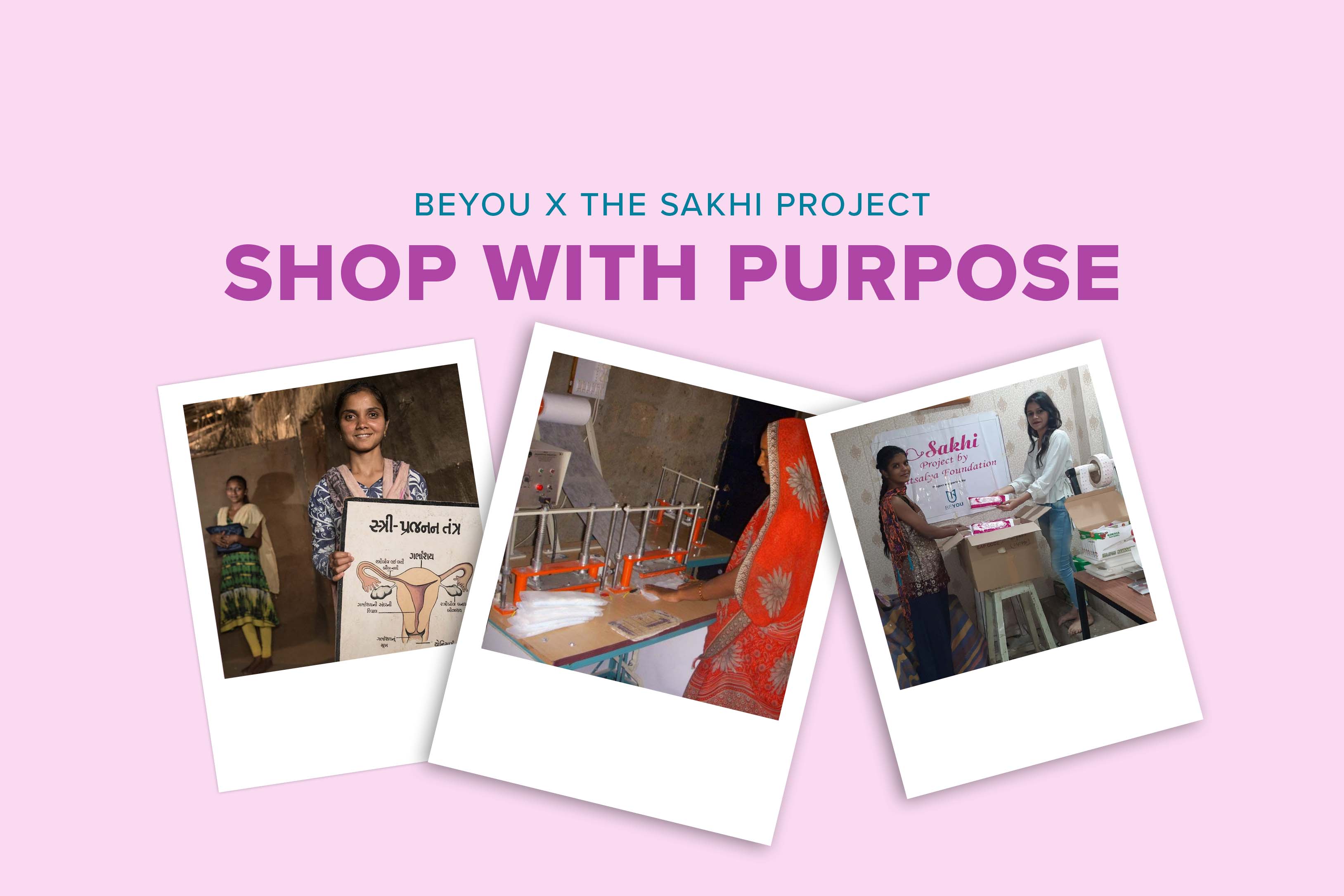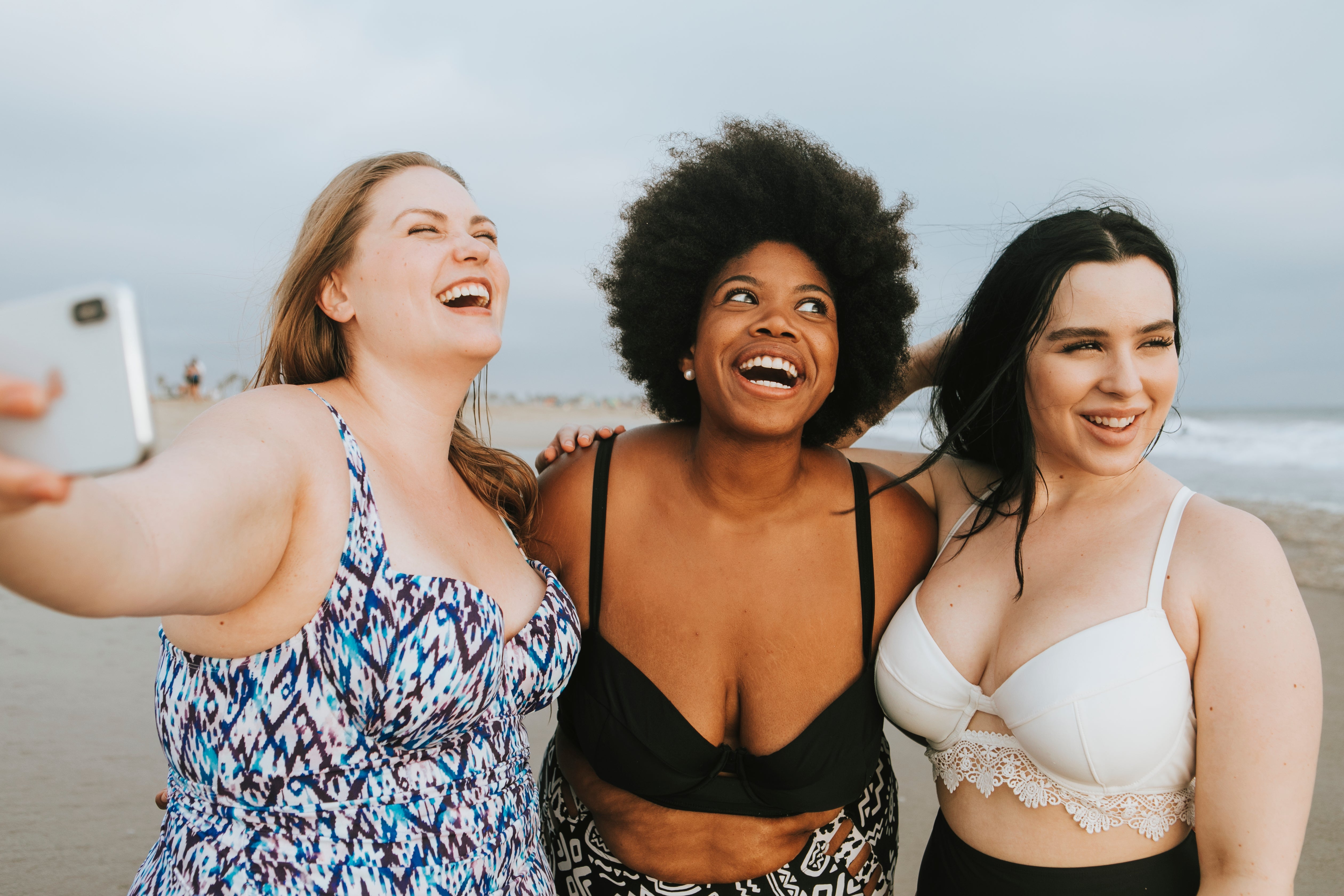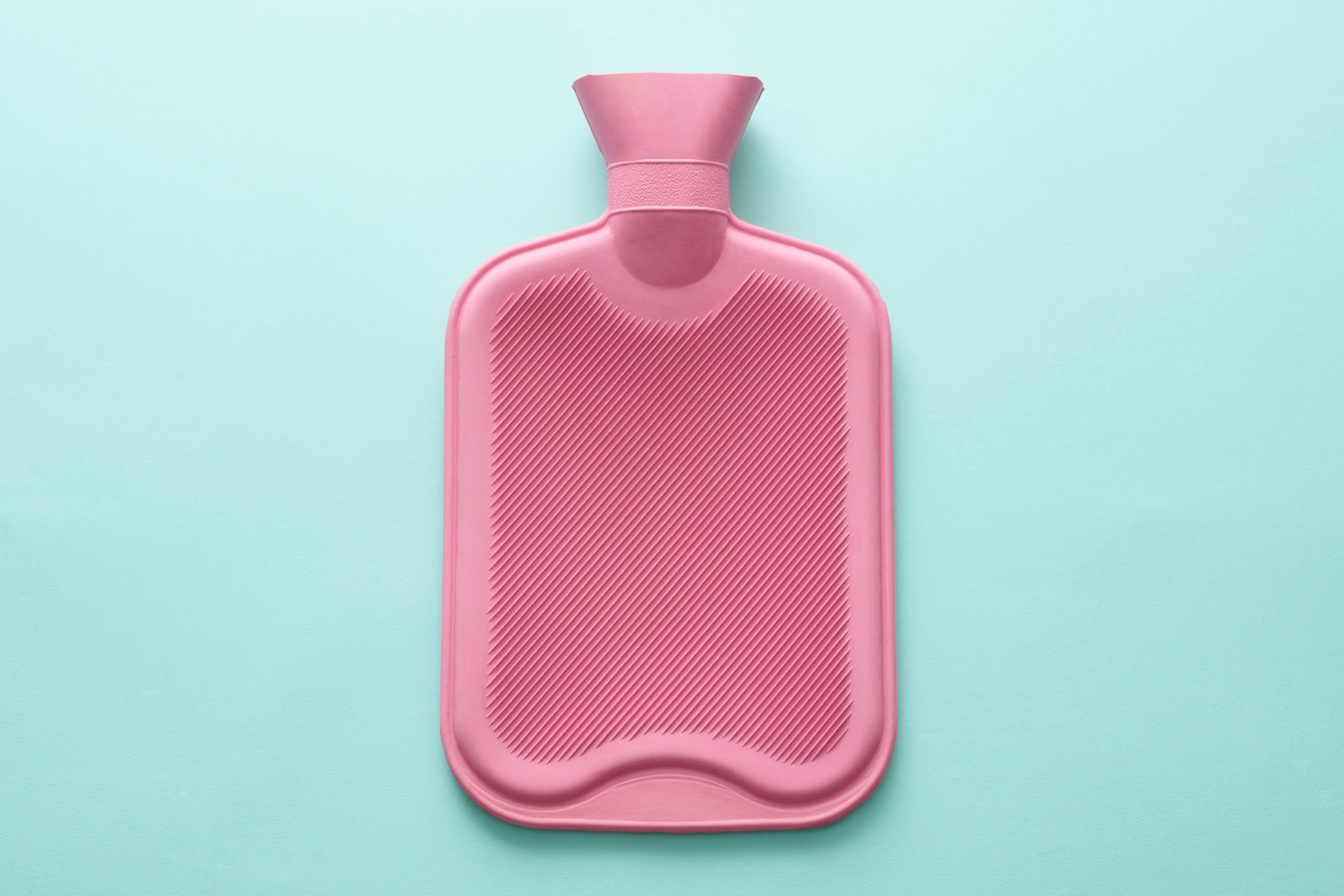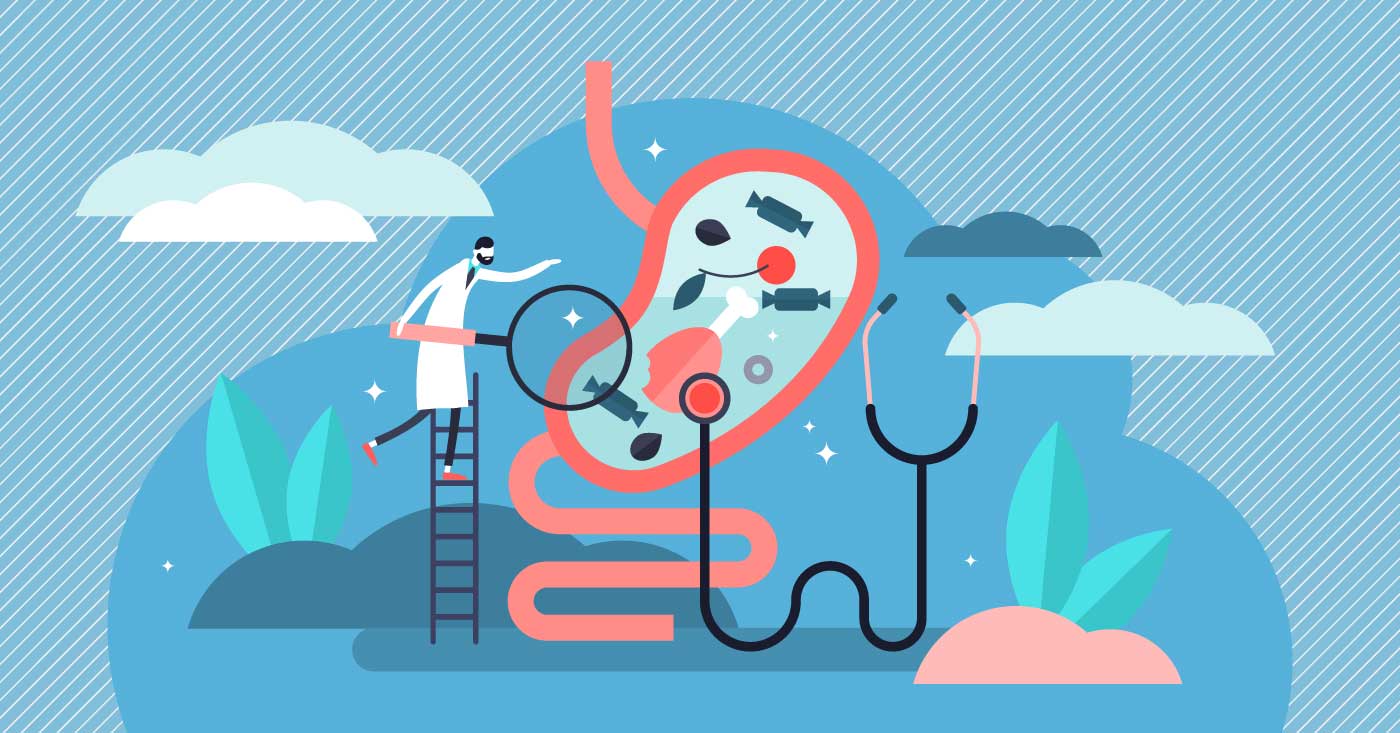Podcast Diaries: The Period Podcast S01E03
Mar. 05, 2020 By BeYou
Why we love this episode:
This third episode of The Period Podcast, Dr Clancy speaks to Dr Alma Gottlieb. This episode is particularly close to our hearts because it’s all about menstrual taboos and where they come from! So many of you will resonate with this episode – there were so many times we had to pause and have a little chat about it! Sure its very American, but we think you’ll be able to make it relatable to you, wherever you are.
There is still SO far to go to really break down the period taboo but you know we’re working on it! Anyway, have a listen, or go and favourite it on your favourite podcast app!
As always, we’ve transcribed it for you if you’re one of those people who likes to read and listen, or just prefers reading!
Listen & Learn:
Transcript:
Okay. This is PERIOD Podcast, episode three. My name is Kate Clancy and I'm a professor researching periods; how they affect our life and how our life affects them. Today we are going to learn what a period means culturally.
I've interviewed Dr. Alma Gottlieb, a cultural anthropologist. She is a Professor Emerita at the University of Illinois, which yes, it is also where I'm employed. In this interview Dr. Gottlieb and I discuss her work on menstrual taboos, or lack thereof, among the Beng of the Cote d'Ivoire and her thoughts on American menstrual taboos.
Dr Gottlieb is presently a visiting scholar at Brown university, so my thanks to the folks at Brown for allowing Dr. Gottlieb to use their recording studio. I do not thank my dog for interrupting.
The first thing I want to ask is how did your training and broader perspective on gender and women's studies, the way in which you were really involved in that scholarship, how did that lead you on the path of studying menstruation, health and the reproductive body?
Another piece of my sort of coming of age was reading a canonical text that came out when I was in high school called Our Bodies, Ourselves, and it was produced by something called the Women's Collective in Boston. I don't know that it's still read or in print even, but for probably 20 years it was read by pretty much every native speaking English woman in America. It was really not just a bestseller at a statistical level, but it seeped into women's consciousness and I think really changed a generation of women for giving us a voice for thinking about our bodies.
Okay. Kate here for a second with a fun fact. Our Bodies, Ourselves, the book that Dr. Gottlieb was mentioning here, was created by the Boston Women's Health Collective. My mother's obstetrician, the one who delivered me and my sister was one of the founders of that collective. And years later when I was in grad school, I got to be one of the post readers of Our Bodies, Ourselves for the 2005 updated edition. Menstrual blood is in my blood. Okay, back to the interview.
So much about body issues in general and women's bodies in particular had been taboo in the US. I spent a lot of time in graduate school reading about taboo. It was one of my interests. The more I read about how taboos work in non-Western societies, the more I thought non-Western societies don't have a monopoly on this. Taboos are alive and well in contemporary post-industrial societies such as the US and everywhere else.
That book, Our Bodies, Ourselves, began a path of I think personal liberation for many, many young women of my generation and everyone younger. I think every woman, certainly in America, whether or not they know it has been influenced by the legacy of that book because it allowed us to speak about things that were previously unspeakable. Sex became the obvious first go-to topic that was legitimized as a conversation topic by the book. Menstruation remained in the background. It never gained anything like the status of sex for a topic of public conversation.
In graduate school as I was reading about taboo and reading about other bodily processes, reading people like Malinowski and Margaret Mead who had a lot to say about sex, but little if anything to say about menstruation, it occurred to me that menstrual taboos were alive and well in the US. I sort of tucked that in the back of my mind. It wasn't the focus of my doctoral research by any means, but I was planning in my doctoral research to look at gender issues, not necessarily body issues, but gender in all of its manifestations and forms.
And so part of my interviews had to do with menstruation. It wasn't a focus, but I was pleasantly surprised in interviewing people that men felt very comfortable talking about menstruation. And I myself was a little bit embarrassed when they would bring up the topic because I wasn't used to talking about menstruation with anyone other than my mother and maybe my best friend, who was female. I don't think I'd ever had a conversation with my father or any other male about menstruation. And so for African men to bring up the topic at first made me a little uncomfortable, and of course I dug down deep into my own subjective experiences and realized that that was data. That even I as an anthropologist trained in feminist theory could feel uncomfortable, and how deep were those taboos if even somebody like myself could feel unsettled.
I forged ahead and pushed past my own discomfort and asked men and women about their experiences and found that they had a lot to talk about, very little of which resonated with my own experiences or the experiences of any woman that I knew of who I had talked about the subject with. So I was really intrigued that this thing that my junior high school health ed teacher had told us was a universal, suddenly seemed a whole lot more variable than I had ever imagined.
I have two questions for you coming out of that. First, can you define this word taboo, because I think we have probably like a scholarly definition and then a popular definition and I'm wondering how much they overlap? And then I'd love to hear a bit more about some of these experiences you're talking about what the variation is that you're actually learning about once you realized some of these supposedly universal experiences weren't universal.
Yeah. Great. Yeah, the first question is a wonderful one.
The person in anthropology who wrote about taboo in the way that I thought was the most revolutionary and helpful was a German guy named Franz Steiner ... Austrian actually ... Viennese. He reminds us that the word comes from a cluster of Polynesian languages. And in these languages, what's so interesting about taboos is that they don't signal processes or practices or beliefs that are by definition negative. They signal practices or beliefs that are by definition set apart and occupy a special status, but they may be devalued as menstrual blood is in the US or they may be positively valued as sacred.
So there's no moral connotation to taboos in traditional Polynesian societies. There's just a status of special-ness. But as the term has been, I'd say, used and may be transformed in Euro American and other maybe Western societies it's taken on an exclusively a negative connotation, which I think itself is interesting because I think that speaks to discomfort with bodily processes, which tend to be tabooed in Western societies that have deep biblical origins. So if we look at, for example, the Old Testament, which is really the mother of the menstrual taboo as it's understood in Western societies, all we have to do is look at Eve, right?
Eve was cursed. Once we have a notion that the menstrual cycle is a curse because of a mythical story that the Bible tells us, should be our text, those of us raised in a Judeo-Christian tradition, once we have that story as a foundation in book one Genesis of the iconic religious text for our society, there's only a negative way to think about menstruation. That positive possibility that Polynesians and others imagine for taboo processes isn't on the table because conceptually it doesn't make sense. It's a non-starter.
The other question ethnographically so what was I finding in small villages in West Africa that looked different? The first thing I found was that people were happy to talk about menstruation. It actually wasn't taboo at all and that itself was really shocking. People spoke about menstrual processes in the same tone of voice and with the same level of comfort that they talked about the weather. People might talk about when they had periods.
It was in fact publicly known when women had periods because the one thing that was taboo was for women who are menstruating to go into the forest while they had their periods. And so for however long their periods lasted, three, four, five, six days, they were in the village, and these are farming communities, normally women spend most of the daytime in the forest, which is where their farms are located, so if any woman is home for a day or two or certainly four or five days, everyone knows it's because either she sick or she has her period, and if she's sick then they can tell. If she doesn't seem sick, then they know she has her period. So that's public knowledge.
And so while she's a home, not allowed to go into the village, she's got four or five, six days to rest. That's always a nice thing when you have your period. And because she's resting and not working hard, she actually has extra energy. We have a sense often for us in the US and other industrial societies that you get especially exhausted when you have your period. Well that makes sense because hormonal things are happening, which you can explain better than I, and if you're doing all your regular physical work, it's going to be taxing, but if you're just resting all day, you may wind up with more energy.
So these women are cooking. They're cooking up a storm because they have the time to cook and rest and they make a special stew while they have their periods. It's a special stew that requires long-term cooking. So if you cook it for four, five, six hours, it turns out really, really delicious. Normally they don't have time to do that because they're in the fields all day and by the time they get back it's five or six o'clock, they don't want to eat at midnight so they can't possibly start this stew. But if they start it in the morning, by the time it's dinner time, it's gotten really thick.
It's made with palm nuts. You dump a bunch of palm nuts in a big pot with a lot of water, and if it cooks for five or six hours, it gets really thick and really sweet and it totally changes. So if you've had palm nut stew that's been only cooking for an hour, it tastes like watery soup, but if it's been cooking for five or six hours, it's absolutely Ambrosia.
That's another reason that people know that a woman has her period because she's serving up this to die for palm nut stew.
So I wonder then, do children develop really positive associations with their mother having her period because it means that she gets to serve them this special stew? Or is there a way where there's more of a positive association with this time because of this food practice?
Yeah, that's a great question.
I didn't actually ask about that because although I'm emphasizing that it was public knowledge that women had their periods and they make this delicious palm nut sauce and they're home all day, in fact, most women don't menstruate very often because they're either breastfeeding or pregnant most of the time. That's another reason why I think many of us in the West get tired because we're menstruating a quarter of our lives. Well a fifth maybe let's say for five or six days out of 28 or 30, that's a whole lot of menstruating going on if it's going on month after month. But with no reliable birth control, you're going to wind up, if you don't have major fertility problems, pregnant pretty often.
Certainly.
So if we're talking about what kind of impact does this relatively positive experience of the period have on young girls, I think it might have a bit of an impact, but they're just not going to see it all that much at least in their mothers. They may see one woman having her period once, maybe an aunt who's living nearby or a young grandmother or a cousin. So cumulatively I think it might have an impact. But just from their mom, probably not that much of an impact.
So then I'm wondering if we can pivot to thinking about, as you said, these different populations that are menstruating all the time. I mean do you think the frequency of menstruating is part of what's affecting how that taboo is changing?
Yeah, I think that's a great question and it's hard to prove scientifically because we can't make it an experiment, but it seems intuitively to stand to reason.
The wonderful anthropologist, Emily Martin, has a fantastic article on that topic. She published a version of it in the book that I edited Blood Magic, called Premenstrual Syndrome: Discipline Work and Anger in Late Industrial Societies, and then she published another version of it elsewhere. In that wonderful article, she argues a version of that. That if we're going to be menstruating month after month, year after year, decade after decade, that's going to get pretty tiring.
And then we're not giving women time off from work. And so we've just got a plunge ahead as if we weren't menstruating. The taboo tells us we can't tell anybody at work much less our boss that we've got our period. So if we're a little more rundown or irritable or thirsty or having food cravings or feeling bloated or whatever other physical, let alone emotional symptoms are going on, we're not allowed to talk about it at work, which is probably going to make us grumpier ...
So I think kind of a negative feedback loop may actually occur. We're not allowed to talk about it because it's taboo. We feel crappy, which makes us feel even crappier because it's taboo because we can't talk about it. And because we feel so crappy, it perhaps becomes even more taboo to talk about it because who wants to talk about crappy stuff, right?
Right.
I think the origins of the taboo certainly are biblical as I mentioned. There's a whole lot going on in Genesis. But the way our work lives are organized probably if anything reinforces the taboo paradoxically since we in Western societies tend to have I think a very 180 degree erroneous conception that taboos are a monopoly of non-Western societies. If anything, I think the taboos may have strengthened in industrial societies because of these work issues.
One of the other things I wanted to talk about is we've been talking a little bit about this idea of menstrual taboo and when I was to prepare for this interview I was skimming back over some of Blood Magic and I was really struck by the way that you were talking about how anthropologists have thought about menstruation and how it's changed, and it seems like you have I think a really useful perspective here and how you think it should change or how you think anthropologists should be thinking of menstruation. Can you say a little about that?
I guess one of my responses to your question, how should we be thinking about menstruation as anthropologists; my simple answer is more. We should be thinking more because there's still far more we don't know than what we do know even at the basic biological level. Or maybe there's more known about that than I know of.
Yeah, the earlier work tended to just focus on the menstrual taboo as if A, there was one and B, it looked the same all over and C, it was universal. I was quite sceptical about that, and the more I heard from my Beng friends in the rainforest in Cote d'Ivoire, the more I thought that one size fits all model really needs to be revisited. When I got back, I read an article by an anthropologist named Thomas Buckley, who had just published this brilliant article in the Journal American Ethnologist looking at menstrual practices among the Yurok, a native group of Northern California with whom he'd lived for quite a long time. He'd learn their language.
And like my experience, he found that menstruation was not subject to verbal taboos. That people were willing to talk about it. They had menstrual huts and one of the few aspects of menstrual experiences that anthropologists had written about prior to Blood Magic was the existence of these so-called menstrual huts. And the assumption was always that if a woman is being required to essentially exile herself from community life and stay in a menstrual hut by herself, it must be because menstrual blood is seen as so polluting and morally degrading that she can't have any company with anyone else; her husband, her family, or even neighbours. She has to be on her own. There was something called a scratching stick that was said to be required to use if she had an itch because she couldn't even touch her own body with her own hands because she was even polluting to herself because of the menstrual blood flowing from her.
So some of the few works written about menstruation in the 40s and 50s emphasize these menstrual huts and scratching sticks, and if anything propagated an even more negative view of menstruation. And along comes Thomas Buckley. And what he finds out is that among the Yurok, women isolate themselves in a menstrual hut but they're not alone. Other women who are menstruating typically join them because in this society, traditionally women were menstruating on the same schedule. Not only that, but they claimed to be manipulating their biological processes to actually get their menstrual cycles into sync if they weren't. And in order to do that, they would sit under the moonlight and they claimed that the moonlight would ... they weren't using the language of science, so they weren't talking about it changing hormonal cycles, but they claimed having access to the same amount and timing of lunar light put their cycles into sync.
There has been some biological research that suggests that there may be some biochemical processes behind that light hypothesis. That's old research. I haven't seen anything more recent. Maybe you're aware of it. And if there's been nothing since then, again, shame on us. There's so much great research to be conducted with so many questions.
What Tim Buckley found among the Yurok is that because, at least they claimed to be starting on the same day, there was always a number of women in these menstrual huts at the same time and so they weren't alone. They weren't isolated. They weren't bored and depressed. They had each other. And they used the time not to party, although that does happen elsewhere, but they used the time for spiritual inquiry.
And so this is a case where that Polynesian notion of taboo as either positive or negative really speaks. The Yurok aren't Polynesian, but they had something of a similar sense that menstrual blood is taboo because it's so sacred and powerful. And if women couldn't touch themselves and needed scratching sticks, it wasn't because they were polluting themselves; it was because they were so powerful that their power shouldn't be dissipated in a mundane activity like scratching.
They used this time for reflection, for taking baths in sacred waters. And that period lasted for 10 days. Even if their menstrual period didn't last for 10 days; it was a 10 day duration of sacred moon time as it's called in the Yurok language, as it's translated into English. And then for another 10 day duration, during a 30 day month, men had a time of 10 days of sacred reflection and activities. So out of a 30 day month, only 10 days was devoted to daily mundane secular activities, 10 days was devoted to women's sacred activities, 10 days was devoted to men's sacred activities. And so in that sense women's menstrual experiences and women's menstrual schedules really lay at the heart of the entire community's calendar. The opposite of being taboo to talk about, even though in a sense we can say women were taboo for that 10 day period, but it operated so differently from how we imagine a taboo operates.
That's again a roundabout way of getting back to your question; how did anthropologists think about menstruation? There was this notion that one taboo model fits all and the Yurok case clearly tells us that taboos look and feel and act really differently in different places.
I think there is still incredible room for more research. Most of the research has been done on PMS in the US. So yeah, I still think even within anthropology, there's a little bit of a verbal taboo on the subject.
When I first published the book, only one of my male colleagues congratulated me about it, even when it won two awards. I don't think it's that they disapproved; I think they were embarrassed. That was 25 years ago, but I actually think we still have a fair amount of taboo even within the discipline. I'm so excited by your new podcast series because I think you're actually going to help break open the taboo, which I think still exists. If we look at how much research exists about menstruation cross-culturally, it's still pathetically tiny.
The last main question I have at least then that I don't know, hopefully will sort of sum up or help us think together about all this great information you shared is so then how would we actually define a period? Because there's a way where again, someone like me who is more biologically inclined, I define a period as menstrual effluent. It's like the stuff that comes out of your body that's made of endometrium and blood that's pushed out at the end of a cycle, and here are the physiological reasons behind it. But what is the cultural meaning of a period?
Well, I'm so happy you're asking that question because for so long the few people who would even talk about menstruation, typically people like middle school health ed teacher, assumed that they knew what a period was and assumed that it was a single biologically oriented definition and I think that left a lot of young girls even in America in confusion because their periods didn't feel like a biological thing. It felt like an emotional thing. And there was little discussed about emotion, except perhaps to warn girls that they might be feeling emotional, whatever that meant. That was a little ambiguous.
But if we open up the question and leave it as an open question and remind us to leave it as an open question, we're going to get to some really interesting places. So if we start in New Guinea, we'll get to societies that claim that men menstruate. So as a biological anthropologist, what are you going to do about that? What do you do when a group of people says men menstruate? Well, for me as a cultural anthropologist, the first question I'm going to ask is, really, tell me about that. How does that work? And then I'm going to hear about subincision, and societies where every month the men makes a gash in his penis to bleed so that he can bleed once a month the way women do because he wants parody with women. All of a sudden if you hear about that, that opens up a whole set of questions about gender relations, gender equity, patriarchy, matriarchy. So many questions happen when you hear about societies that claim that men and women both bleed?
If I ask the Beng what is menstruation, I'm not going to get the kind of biological response that you just offered. When I asked a Beng Master of the Earth, an older man, about menstruation because he himself brought it up to my amazement and I asked him just a simple question, the kind of naive question that we love to ask in cultural anthropology; so what is menstruation? His answer was a poetic metaphor. What he said was menstruation is like the flower of a plant. If a plant produces a flower, that's a sign to us that it's fertile and it can reproduce. And if a woman menstruates, that's a sign to us that she's fertile and can reproduce?
He wasn't thinking about it in its physicality per se; he was seeing its physicality as a marker and as a marker and not just of an individual woman's fertility but really of the community's ability to reproduce itself. If a community can't physically reproduce, they're doomed. So menstruation in his view was a really key component of community's life and future. That's again a very different way of thinking about menstruation.
If we asked the Yurok, they would say something about it being a pathway towards spiritual enlightenment. If we ask Donald Trump, we'd hear about it as a sign of depravity and the source of irritability and aggression. When Megyn Fox was asking aggressive questions, as journalists are often trained to do, his only explanation since she's a woman and clearly in his mind didn't have the right to ask aggressive questions because women aren't supposed to be aggressive, the only explanation could be she has her period. He was subject to such verbal taboos that he couldn't even use the word. He had to use this bizarre locution; "bleeding out of her whatever."
Kate here again. For those of you who don't remember what we are talking about here, this is a clip of Republican presidential nominee, Donald Trump, insulting Fox commentator Megyn Kelly after she interviewed him.
Donald Trump: "You know, you could see there was blood coming out of her eyes, blood coming out of her whatever."
Okay, back to the interview.
We still have a great variety of ways of talking and thinking about menstruation and periods and I get why a scientific approach requires a one size fits all definition of the biological processes, so I think that's an okay place to start. But then if we don't stop there and ask people their own sense of what is a period to you, we may wind up getting a lot of new questions to ask and a lot of new answers that I don't think we'd been getting because we just haven't even thought about asking that basic question.
So taboo means something that is set apart, but then different cultures conceive of different taboos as dirty or sacred. Dr. Gottlieb makes the case that our Judeo-Christian origins help explain why menstrual taboos are so especially negative in American culture. The other big takeaway to my mind is the reminder that between menarche and menopause, girls and women menstruate 20 to 25% of the time.
One of my favourite comedic bits about living life while on your period comes from Carmen Esposito. The whole piece is amazing and I'll put the link in the show notes so that you can see it all and buy Esposito stand-up album. But here's the most relevant clip.
Carmen Esposito: Chunks of my body are being smashed out of my body by my body. Sometimes the chunks are so large the only logical thing to do is to pick it up and hold it in your hand just so you can marvel at it. It's the size of a strawberry. A non-organic, pesticide ridden, grocery store strawberry. Piece of my body. And this is not just happening to us at our home in our beds; this is happening to us on planes. We are on planes and a chunk of our body is falling out. We run to the bathroom, whip out a dirty thing and stuff it in the wall, take a clean thing out of our pocket, shove that in, it's very painful, then go sit back in our seat for three and a half, four hours. And this is happening to us at work. At work, we're just like, "Yeah I can have that report for you by tomorrow."
About a quarter of the girls and women you interact with and some of the men are menstruating at any given time, but we're all hiding it for the most part. We'll actually talk about menstrual products, leaking and intentional free bleeding in an upcoming episode.
I'd like to thank Dr. Gottlieb for her fantastic interview today, and I want to tell you a little more about her. Dr. Gottlieb co-edited a book with Thomas Buckley, Blood Magic: The Anthropology of Menstruation. And has two other books to her name, her monograph, The Afterlife Is Where We Come From: The Culture of Infancy in West Africa, and another co-edited volume with Judy DeLoache, A World of Babies: Imagined Childcare Guides for Seven Societies. A new updated version of a World of Babies is due out this fall. Dr Gottlieb's website and blog can be found at almagottlieb.com.
Shownotes:
Excerpt: Kate interviews cultural anthropologist Dr. Alma Gottlieb about the cultural meaning of periods.
Summary: I interview Dr. Alma Gottlieb about what periods are, culturally – what they mean to us, what they do to us, how they fit or don’t fit into the dominant cultural paradigm. Dr. Gottlieb shares insights into menstrual taboos, in the United States and cross-culturally. She also talks about what it means that 20-25% of the reproductive-aged women you meet are menstruating, even though they are hiding it. What does it mean to hide something fundamental about yourself for a quarter of your lifespan from menarche to menopause?
Dr. Gottlieb has a new edition of her book World of Babies coming out shortly – check out her Facebook page here.
Two other things: here is a link to the latest edition of Our Bodies, Ourselves, which we discussed on the podcast. I also couldn’t resist sharing one of my favourite period jokes by comedian Carmen Esposito. I share a clip on the podcast, but you can find the whole thing here:
Next week, I share the interviews of almost a dozen kids and parents, talking about what they think a period is. Despite sampling from a very hippie, educated group of moms who willingly show their kids menstrual blood at every opportunity, many of the kids had no idea what I was asking them about.
Subscribe to PERIOD so you don’t miss an episode! Subscribing, especially on iTunes, helps with promoting the podcast and getting the word out to more people. You can also find information about the podcast at Period Podcast on Facebook.
Want to be on PERIOD? I am collecting first period stories! Leave me a voicemail with your story at 262-PERIOD-2. Don’t forget to tell me how to contact you if I want to follow up.
Other ways to contact me:
- Email me at periodpodcast2 at gmail dot com
- Find me on Twitter at @periodpod2 and @kateclancy
I can’t wait to hear what you think! Thanks for listening!
Direct download: here
Permalink: here
RSS: here





